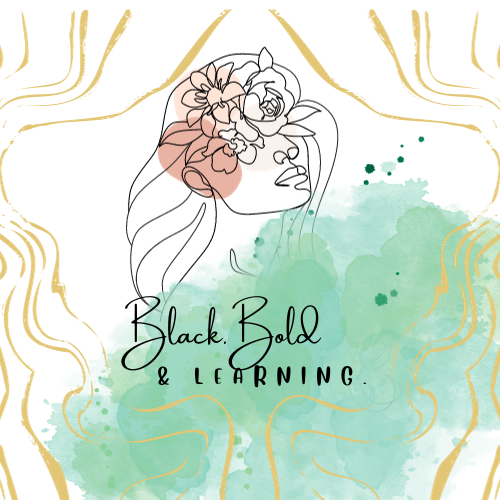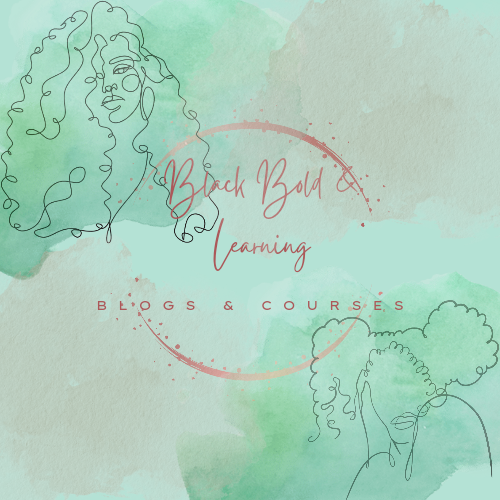Why Do I Feel Guilty for Meeting My Needs!
As high-achieving BIPOC women, we often find ourselves feeling guilty or ashamed for no reason. We've been taught from an early age that we exist to please others, to show up for family, to apologize for other people's mistakes, and to support everyone else's needs. But when do we get the same treatment in return? The truth is, our success and drive didn't happen by chance. We have worked hard to get where we are, but it's important to remember that we don't owe anyone an explanation or justification for our success. It's okay to prioritize ourselves and our needs, even if it means saying no to others or setting boundaries.
Let's empower ourselves to let go of unnecessary guilt and shame, and to prioritize our own well-being and happiness.
We should serve…
It's important to acknowledge that as high-achieving BIPOC women, we often feel a strong sense of obligation to put others' needs before our own. While it's important to support and serve others selflessly, we can't forget to prioritize our own needs and set boundaries when necessary.
Unfortunately, this mindset can lead to feelings of guilt when we assert ourselves or prioritize our own needs. For example, we might feel guilty for calling out a boss who isn't meeting our needs as a minority, or for ending a service that isn't providing the support we need.
But the truth is, we don't need to feel guilty for prioritizing ourselves and setting boundaries. It's important to recognize that our needs and boundaries are valid, and we have the right to advocate for ourselves. By doing so, we're not only taking care of ourselves but also setting an example for others to do the same.
YOU DON’T NEED TO FEEL GUILTY!
Many Black Women Just Like You Have An Internalized Sense of Guilt
I'm glad to see that you're working towards unlearning the guilt that comes with putting yourself first. As high-achieving and high-functioning BIPOC women, it's common for us to feel like we have to put others before ourselves. However, this mindset can lead to misplaced guilt and feelings of shame when we need to set boundaries or prioritize our own needs.
It's important to recognize that we don't need to feel guilty for speaking up when our needs aren't being met. We deserve to have our needs fully met and receive impactful feedback. By ignoring our own needs to appease others, we're doing ourselves a disservice.
I understand that it can be tough to confront our own emotions and acknowledge when our needs aren't being met. But we deserve so much more than living a life with only halfway met needs.
Let's work on unlearning the guilt and shame associated with putting ourselves first so that we can live a life where our needs are fully met and we can thrive.
Here is why you may be feeling guilty
You did something wrong and it’s just your conscience
Perhaps you feel guilty for something you didn’t do, but want to
It could be guilt for something you think you did
You may feel guilty for not doing enough for someone
Perhaps you have learned to associate guilt with various situations
It could be guilt for doing better than others
Is my guilt healthy or unhealthy?
Guilt can be a healthy emotion, but sometimes we feel guilty without any valid reason. This is what we call maladaptive guilt, and it often stems from perfectionism or people-pleasing tendencies. It can be challenging to recognize and overcome, but it's essential to understand that excessive guilt isn't helping us make better decisions. Instead, it makes us feel bad for prioritizing our needs and boundaries over those of others. This feeling can be overwhelming, but it's crucial to remember that you are not alone in this struggle. Many high-achieving BIPOC women face similar challenges, and it takes time to unlearn the harmful messages that society has drilled into us.
If you are struggling with excessive guilt, ask yourself these questions:
Take a look at the situation
Do you believe your reaction made sense for the situation?
If yes, take some deep breaths, go on a walk, and call a friend, but don’t give into replaying and ruminating over the issue.
In the event that you didn’t react appropriately, consider what you would do to change the situation in the future? Do this action and use radical acceptance to acknowledge you have done all you can at the moment.
Be sure when you’re in a better headspace to consider “What have you learned from this experience that will be helpful in the future”?
You Deserve Better!
It's important not to let guilt hinder you from living your life to the fullest. I understand that this can be difficult, as I am currently facing this myself. However, once we learn to associate our emotions with the appropriate situation, it can be incredibly liberating. If you struggle with this, don't underestimate the value of seeking support from a qualified mental health professional. You can check out the Therapy for Black Girls website to find a Black therapist in your area who can help you navigate these emotions.
"Empower Yourself and Thrive with Black.Bold.&Learning: Personal Growth and Development for High-Achieving BIPOC Women
Welcome to Black.Bold.&Learning – a safe space for Black and BIPOC women to explore personal growth and development through courses, coaching, and creative resources. I offer a wide range of services to help you on your journey to a better life, including webinars, blogs, courses, and one-on-one coaching sessions.
Black. Bold. & Learning’s mission is to empower Black and BIPOC women to overcome body image issues, disordered eating, and burnout by providing personalized coaching and support.
Join our community of strong, empowered women and gain access to our exclusive resources, including:
Webinars for personal development, covering topics such as boundaries, communication, and relationships.
Courses for WOC and BIPOC women, are designed to help you overcome burnout and build resilience.
Personalized coaching sessions with a certified Black life coach, focused on executive coaching, personal development, and self-discovery.
Blog articles explore a range of topics related to personal growth, mental health, and creative expression.
Contribution to research on topics related to BIPOC women's mental health and wellness.
If you're ready to take the next step on your journey to self-discovery and personal growth, book a Discovery call with a certified coach today. Let us help you unlock your potential and achieve your dreams.




